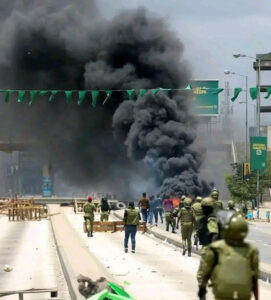
Africa is Not a Monolith
Africa is not a monolith. Indeed, ask anyone from the diaspora and you’ll be met with mild indignation at best, weary dismissal at worst. Yet Africa’s challenges often appear monolithic, uniform in their dysfunction, recurring like a systemic disease. Many in the diaspora might concede: the problem lies in governance.
While the shackles of past colonizers, reimagined as permanent tenants through institutions like the IMF, still rear their ugly heads every so often, however, we cannot place the blame for today’s crises solely at their feet. Across the continent, numerous states, at least by Western metrics, are deemed “failed”. The data, sadly, reinforces this bleak statement. According to the World Bank, Sub-Saharan Africa alone now hosts approximately 60% of the world’s population living in extreme poverty – roughly 390-400 million people, out of a global total of around 650-700 million¹. Moreover, when we look closer, we find a potent mix of authoritarians and corrupt governments with thinly veiled “democracies” at the helm of these regions that continue to doom their populations to cycles of misrule.
Tanzania’s Current Cycle
Yet within these figures, lies a much deeper and more human story. One of resilience, courage, and the very real human need for destruction and rebirth. In Tanzania, this cycle is unfolding in real time. A country long revered for being a peaceful and stable bastion within the region, has, in the way of her people, bared her fangs.
On 29th of October 2025, the day of Tanzania’s general elections, mass protestors took to the streets of Dar es Salaam, Arusha and Mwanza². Their frustrations and ire were directed towards the current regime’s deliberate erosion of democracy: opposition leaders barred and arrested³, leaving only candidates from the ruling party to dominate the ballot³. A nationwide internet blackout followed⁴, foreign media were denied access, and a 6 pm curfew was imposed⁴. As a result, more impetus to take it to the streets?
Government Response and Human Toll
The police and military were swiftly deployed⁴. Opposition leaders claim the crackdown has left more than 700 dead, citing hospital records from Dar es Salaam and Mwanza. Government officials, however, deny the figure, and the United Nations has so far confirmed at least 10 deaths based on credible reports⁵. Clearly, what is unfolding is not simply a protest against an election, but a reckoning with decades of disillusionment and simmering anger, now tipping into a humanitarian crisis.
A Deeper Resonance
A deeper resonance pulses within Tanzania as of now, one that questions legitimacy and governance itself. The death of innocents who peacefully took to the streets, demanding more than a change of name or face, lay bare the exhaustion of multiple generations. Meanwhile, the world is now watching Tanzanians, who deeply love their nation, demand a complete overhaul of a system that has failed them through the slow decay of democracy and the current consolidation of power within the ruling party of Chama Cha Mapinduzi (CCM).
About the Author:

Mark Vagner is an Editor at The Owner Press. An accomplished entrepreneur and former educator, he brings a global perspective to stories at the intersection of business, governance, and social impact.
Endnotes / References
- World Bank. Poverty and Inequality Platform – Sub-Saharan Africa Overview. 2024. Link
- Reuters. “Tanzania declares curfew in commercial capital after election protests.” 29 Oct 2025. Link
- The Guardian. “Violent protests erupt as Tanzanian president nears election victory.” 29 Oct 2025. Link
- Associated Press (AP). Evelyne Musambi. “Tanzania deploys the military and imposes a curfew on election day after protests erupt.” 29 Oct 2025. Link
- Office of the United Nations High Commissioner for Human Rights (OHCHR). “Tanzania: Deaths and Injuries amid Election – Related Protests.” 31 Oct 2025. Link














